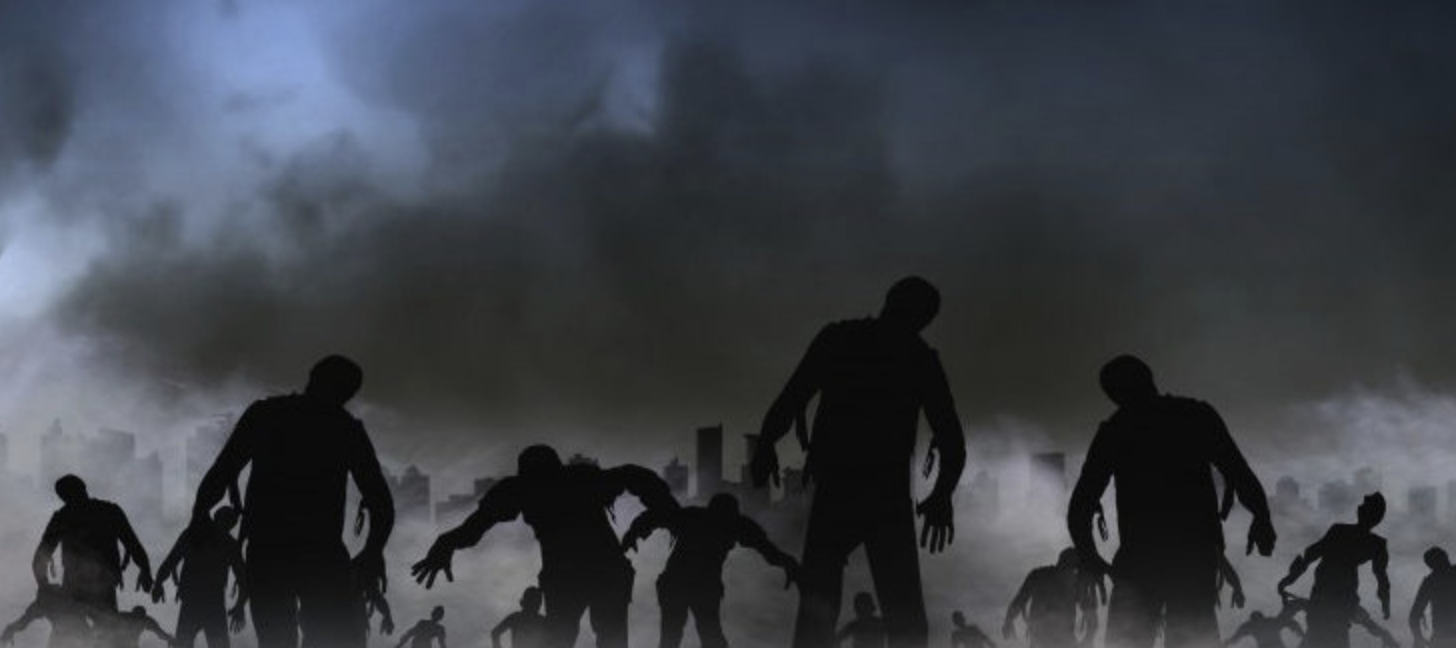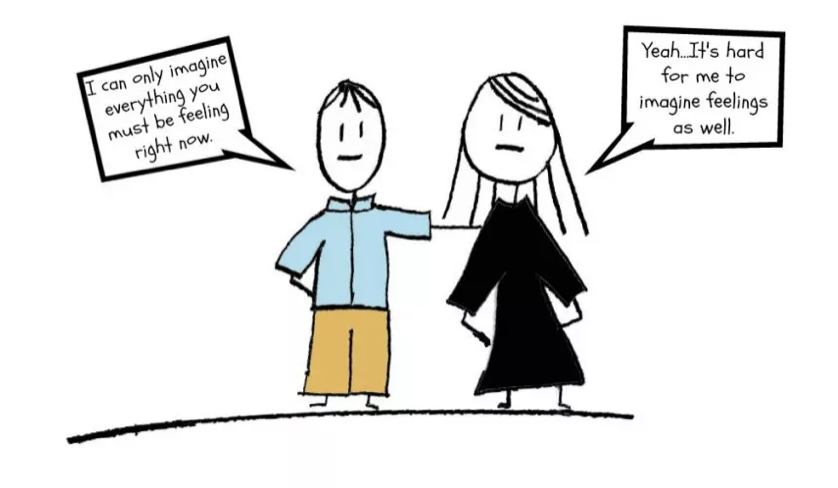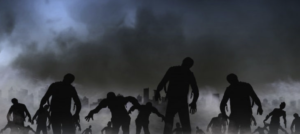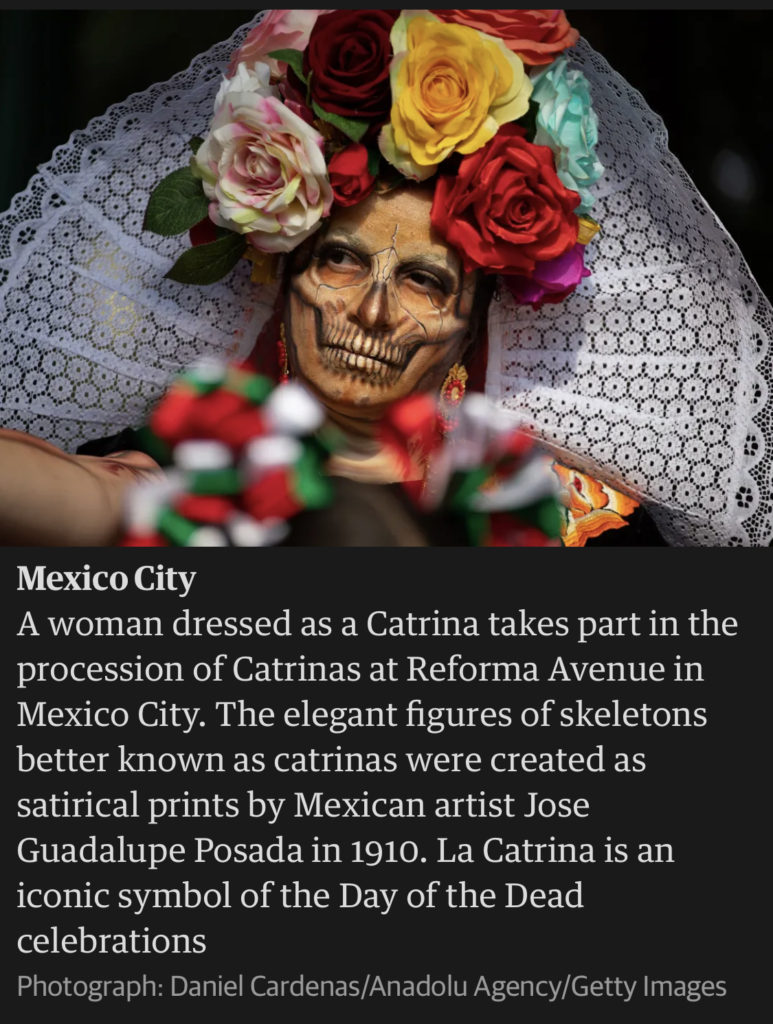
Today is Halloween, also known as All Hallow’s Eve, the day before All Hallow’s or All Saint’s Day. So Halloween precedes the day that some in the Church might commemorate the known and unknown saints. This event may have originated only at the start of the 8th C, only becoming widespread in the 9th C. So where is death in all this? Could halloween become Hallo-death?
Wouldn’t it be better if we were more present to our feelings about death, expressing them, remembering those who died before us and speaking about our loss, their life?

Halloween?
If Halloween is the eve of All Saints Day we might expect the origins of Halloween to also be around the 8th to 9th C – but no. November 1st was the origin of the new year for many Celts, also the date of the start of winter. As the herds of cattle were returned to their home farm, from the fields, it was also when the souls of those that had died were believed to return to visit their homes. This was the festival of Samhain. This was a thin place between the living and the dead. People would light bonfires to ensure that the dead wouldn’t go near their village. What might they be afraid of?

The blog, Death in the Afternoon, speaks of the origins of Zombies which might have originated from the Chinese culture of Janeism, where the dead would return to their home villages. The Priests would tie the bodies on strings suspended between bamboo poles and walk them back the village at night, banging a gong. It was like the dead were walking again. You might have seen something similar in films…
The Roman Empire also had their own festival Feralia which commemorated the passing of the dead. Offerings were made so that the souls of the dead return to their graves.
What might we be afraid of?
In today’s society we might be afraid of death, despite it being inevitable. Our lives are filled with images of murder, tragedies seen on TV or on smartphones where in the past the only slaughter was seen on the farm. Perhaps it is our defence mechanisms kicking in, trying to protect ourselves from those feelings. Surely it might be better to be ‘super present’ rather than denying that opportunity to know ourselves even better?
In the last few centuries when embalming became the vogue so that we could see the bodies killed in war – a very Protestant thing. Then the professionals became more and more involved and our ‘contact’ with the dead diminished. This even came to the point where it was believed that it might be deadly to touch a dead body, when in reality the organisms and viruses would have been dying rapidly as their host had also died (if we ignore ebola and avian bird flu etc). We have now been separated from death by this business of embalming and preparing the body for the wake or viewing. It is denying that opportunity for hallo-death.

Is it Death itself that frightens us?
So at Halloween society tries to interact in a jovial way, creating skeletons which waft in the wind, spiders webs which might cover the whole of the front of the house but still have a pumpkin to tell us it is the end of Autumn – very Celtish. Christians can get very protective at such a time, even denying the very existence of Halloween and forgetting the subsequent All Hallow’s day which follows.
So what frightens us about Halloween? Is it death itself? Could halloween become Hallo-death?
Wouldn’t it be better if we were more present to our feelings about death, expressing them, remembering those who died before us and speaking about our loss, their life?
With family and friends we spent the evening sharing a meal, including food our loved ones enjoyed. We had photos and songs and poetry and shared about our loss and pain but also talked about the things we had learned from them. And in our joint memories we learned some things we didn’t know and felt together.
This has become our tradition since my husband died 5 years ago from cancer. But the people we were remembering died young and old, from accident and disease and taking their own life, near and far away … and that’s life as it unfolds, often not how we expected.
My adult children talked about death with their Dad and saw it as a part of life. My daughter, with the help of the hospital staff nurse, washed the body soon after he died. And my son and her partner were in the room supporting her. (She had asked her Dad if that was ok as she didn’t want strangers to do it). For months they had helped take care of that body, as he became more ill, and it seemed a natural continuation of that. They lifted the coffin into the hearse and with nephews, brothers and friends carried the coffin.
Talking about death and seeing it as the inevitable part of life, sharing our feelings and talking often about those we miss, has helped us to grieve well.
Lynne
thank you for your response. It is really enlightening to read of the journey, that of this continuation of caring and then, in that time of transition, with death. I read a respect for the person throughout when often the deceased is referred as such, the deceased. It is in those conversations that we may have found out so much more of their life, those facets of life which could have been lost but are now cherished. I recall finding out that my Dad’s unblemished service record may not have been so golden – but it didn’t affect our love for him. It sounds very much like death has been an ongoing conversation with the whole family, one that – albeit painful – has brought strength. Thank you again for your comments.
Bob
Thanks Bob for your post. Is hallowe’en part of ancient northern hemisphere human attempts to make sense of death and dying? What did they think caused the longer nights, cold weather, birds leaving and plant life dying back? Kerosene & gas lights arrived in the 1800s, “insulating” us from natural darkness.
I’m unsure how much the unfamiliarity with natural death comes from the blessings of modern sanitation & Infectious disease management, the removal of the curses of awful tenement housing, and the arrival of antibiotics and universal health care. My mum’s pre-WW2 childhood was with her parents, grand and great grandparents.
I can see why improved hygiene has changed positively life expectancy. Just look at Glasgow. However our reticence to engage with death : mourning with the body, reflecting upon our feelings, the actual ceremony, and the paucity of living wills might suggest that we are still unsure how to move forward.
How has the church changed its views on suicide following the perceived suicide of Judas, especially after the plethora of Hebrew Scripture individuals who honourable took their own life?
I found the dialogue interesting and I enjoyed it